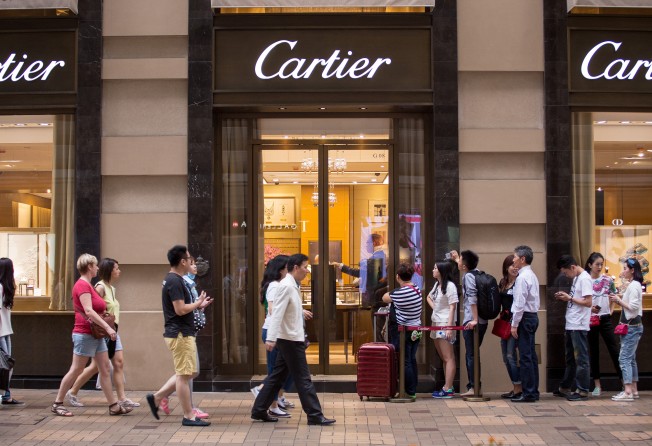Chinese tourists go from Tsim Sha Tsui (TST) to another TST - Tokyo, Seoul and Taipei

The shopping core of Hong Kong is in Tsim Sha Tsui – what people call in shorthand TST.
But the fall in Chinese tourists from the mainland has led to the rise of a new TST – Tokyo, Seoul and Taipei. The fall may be bad news for shopping mall owners here but less so for the big luxury brands.
“The traditional core shopping neighbourhood of Hong Kong Tsim Sha Tsui, known as ‘TST’, is being replaced by a new TST: Tokyo, Seoul and Taipei,” said a research report by Erwan Rambourg, HSBC Global co-head of consumer and retail.
“Chinese shoppers go to Japan for its cultural depth and sophistication, to Korea for up-and-coming trends and pop culture fascination, and to Taiwan to rediscover Chinese culture roots.”
It is one reason why Rambourg would still call Swiss luxury brand Richemont a buy.
The company sells a number of big luxury brands such as Alfred Dunhill, Cartier, Piaget, IWC, Montblanc, Van Cleef & Arpels, Baume & Mercier and several others.
“The lack of a recovery in luxury sales in Hong Kong has weighed on Richemont, particularly as it is together with Swatch Group, the most exposed company to Hong Kong, with 17 per cent of sales more of EBIT,” Rambourg said.
While he believes the Hong Kong situation would be tough for the company, he points out part of the pain could be offset by forex gains and lower raw material prices.
More importantly, Rambourg believes Chinese tourists are still buying these luxury goods – only not from Hong Kong shopping malls but in other countries.
“Wealthy Chinese tourists not purchasing the group’s products in Hong Kong will benefit greatly Japan and Europe,” he said.
He believes Chinese travellers would remain important for the luxury sector, pointing out that Chinese travel has been growing at an impressive pace at 20 per cent over the past five years and there seem to be few signs it is going to slow.
“Considering that departures from China still account for a mere 7 per cent of the nation’s total population as of 2013, versus 29 per cent for Korea, we believe Chinese tourism has just started to accelerate,” Rambourg said. “We find that Korea’s departure ratio rose percentage points in just 20 years following the Seoul Olympics, and we expect China to follow a similar path.”
Another report by Credit Suisse analyst Christiaan Tuntono echoed the view that Hong Kong is losing competitiveness against foreign tourist destinations which offer a cheaper currency and an easier visa application process.
Hong Kong earlier this month has restricted the flow of Shenzhen visitors, limiting them to come once a week visited instead of unlimited travel to the city in the past.
“Many Chinese tourists have visited Hong Kong multiple times over the past 10 years, making it no longer a “new frontier’ for them,” Tuntono said. “Secondly, the strength of the US dollar has seriously eroded the cost competitiveness of Hong Kong.”
The US dollar has appreciated more than 20 per cent over the euro and Japanese yen while the Hong Kong dollar peg with the greenback dragged it up accordingly.
“Coupled with easier visa applications for mainland Chinese tourists in many of these locations, we think more and more Chinese tourists would choose not come to Hong Kong but visit other locations instead,” Tuntono said.
Going back to his call of a buy on Richemont, HSBC’s Rambourg described it this way: “Luxury is a momentum sector, meaning investors want to be involved when organic sales growth accelerates.”